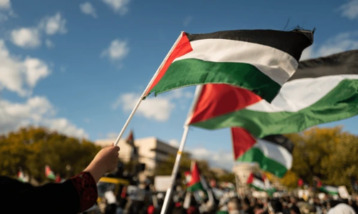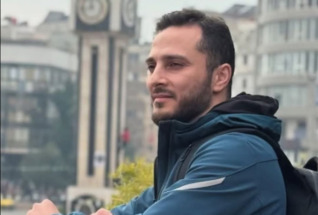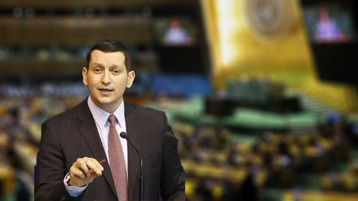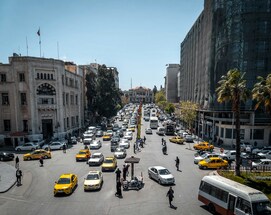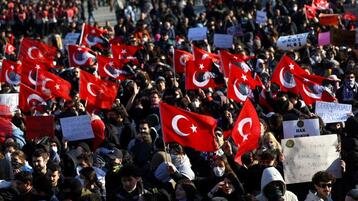-
Iranian opposition group says 500,000 people died from COVID-19

The Arab News reported that an Iranian opposition group operating within and outside the Islamic republic has released figures claiming nearly half-a-million people have died from COVID-19 in the country.
According to the People’s Mojahedin Organization of Iran, more than 499,800 virus-related deaths had occurred in Iran, almost four times the latest official toll of 132,274.
In the worst-hit province, Tehran, the PMOI said 116,735 people had lost their lives to COVID-19.
Even by official figures, Iran is the worst-hit country in the Middle East, with deaths and hospitalizations far exceeding those of its neighbors. It was also the first country in the region where the virus was detected.

Official sources have reported that Iran was currently experiencing a fifth wave of COVID-19, with a rising number of cases being linked to the highly transmissible omicron variant.
On Monday, according to the semi-official ISNA news agency, the secretary of Iran’s epidemiologist committee said: “If we reimpose all the restrictions today, and if people fully abide by these regulations, the number of our patients will still reach five figures. More than 50 percent of the coronavirus cases are of omicron.”
Iranian authorities arrest individual for destroying Khomeini statue
And the spokesman for Isfahan University of Medical Sciences said: “Omicron has become the main variant in (Isfahan) province. During the past week the number of confirmed positive coronavirus cases has reached more than 1,500 cases.”
Also on Monday, ISNA reported that the dean of Kerman University of Medical Sciences said: “Expect omicron to flare up in the not-so-distant future. The number of positive coronavirus cases has increased from 30 to 50 percent. Therefore, the alarm bell has sounded.”
Meta removes Iran-based fake accounts over supporting Scottish independence
Iran’s COVID-19 outbreak has been blamed in some quarters on regime incompetence and Tehran prioritizing ideology over effective response.
Last year, Supreme Leader Ayatollah Ali Khamenei banned the import of British and American-made vaccines, significantly hindering the country’s vaccination drive and, critics have said, causing more deaths.
Iranian court sentences rights campaigner to 8 years jail, over 70 lashes
In August, Dr. Mohammed-Reza Zafarghandi, chairman of Iran’s non-governmental licensing and regulatory Medical Council, criticized the vaccine ban, and said: “Mortality has significantly dropped in countries where they vaccinated the population without any limits and setting (political) borders.
“Will those who said vaccine imports should be restricted be accountable today?”
Source: arabnews
You May Also Like
Popular Posts
Caricature
BENEFIT AGM approves 10%...
- March 27, 2025
BENEFIT, the Kingdom’s innovator and leading company in Fintech and electronic financial transactions service, held its Annual General Meeting (AGM) at the company’s headquarters in the Seef District.
During the meeting, shareholders approved all items listed on the agenda, including the ratification of the minutes of the previous AGM held on 26 March 2024. The session reviewed and approved the Board’s Annual Report on the company’s activities and financial performance for the fiscal year ended 31 December 2024, and the shareholders expressed their satisfaction with the company’s operational and financial results during the reporting period.
The meeting also reviewed the Independent External Auditor’s Report on the company’s consolidated financial statements for the year ended 31 December 2024. Subsequently, the shareholders approved the audited financial statements for the fiscal year. Based on the Board’s recommendation, the shareholders approved the distribution of a cash dividend equivalent to 10% of the paid-up share capital.
Furthermore, the shareholders endorsed the allocation of a total amount of BD 172,500 as remuneration to the members of the Board for the year ended 31 December 2024, subject to prior clearance by related authorities.
The extension of the current composition of the Board was approved, which includes ten members and one CBB observer, for a further six-month term, expiring in September 2025, pending no objection from the CBB.
The meeting reviewed and approved the Corporate Governance Report for 2024, which affirmed the company’s full compliance with the corporate governance directives issued by the CBB and other applicable regulatory frameworks. The AGM absolved the Board Members of liability for any of their actions during the year ending on 31st December 2024, in accordance with the Commercial Companies Law.
In alignment with regulatory requirements, the session approved the reappointment of Ernst & Young (EY) as the company’s External Auditors for the fiscal year 2025, covering both the parent company and its subsidiaries—Sinnad and Bahrain FinTech Bay. The Board was authorised to determine the external auditors’ professional fees, subject to approval from the CBB, and the meeting concluded with a discussion of any additional issues as per Article (207) of the Commercial Companies Law.
Speaking on the company’s performance, Mr. Mohamed Al Bastaki, Chairman BENEFIT , stated: “In terms of the financial results for 2024, I am pleased to say that the year gone by has also been proved to be a success in delivering tangible results. Growth rate for 2024 was 19 per cent. Revenue for the year was BD 17 M (US$ 45.3 Million) and net profit was 2 Million ($ 5.3 Million).
Mr. Al Bastaki also announced that the Board had formally adopted a new three-year strategic roadmap to commence in 2025. The strategy encompasses a phased international expansion, optimisation of internal operations, enhanced revenue diversification, long-term sustainability initiatives, and the advancement of innovation and digital transformation initiatives across all service lines.
“I extend my sincere appreciation to the CBB for its continued support of BENEFIT and its pivotal role in fostering a stable and progressive regulatory environment for the Kingdom’s banking and financial sector—an environment that has significantly reinforced Bahrain’s standing as a leading financial hub in the region,” said Mr. Al Bastaki. “I would also like to thank our partner banks and valued customers for their trust, and our shareholders for their ongoing encouragement. The achievements of 2024 set a strong precedent, and I am confident they will serve as a foundation for yet another successful and impactful year ahead.”
Chief Executive of BENEFIT; Mr. Abdulwahed AlJanahi commented, “The year 2024 represented another pivotal chapter in BENEFIT ’s evolution. We achieved substantial progress in advancing our digital strategy across multiple sectors, while reinforcing our long-term commitment to the development of Bahrain’s financial services and payments landscape. Throughout the year, we remained firmly aligned with our objective of delivering measurable value to our shareholders, strategic partners, and customers. At the same time, we continued to play an active role in enabling Bahrain’s digital economy by introducing innovative solutions and service enhancements that directly address market needs and future opportunities.”
Mr. AlJanahi affirmed that BENEFIT has successfully developed a robust and well-integrated payment network that connects individuals and businesses across Bahrain, accelerating the adoption of emerging technologies in the banking and financial services sector and reinforcing Bahrain’s position as a growing fintech hub, and added, “Our achievements of the past year reflect a long-term vision to establish a resilient electronic payment infrastructure that supports the Kingdom’s digital economy. Key developments in 2024 included the implementation of central authentication for open banking via BENEFIT Pay”
Mr. AlJanahi concluded by thanking the Board for its strategic direction, the company’s staff for their continued dedication, and the Central Bank of Bahrain, member banks, and shareholders for their valuable partnership and confidence in the company’s long-term vision.
opinion
Report
ads
Newsletter
Subscribe to our mailing list to get the new updates!


